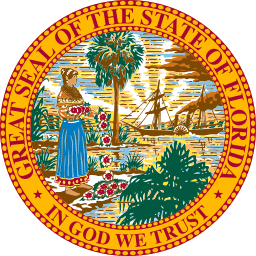State Presumptions Against Extraterritoriality Apply to State Statutes
At TLB, we write a lot about extraterritoriality in general and about the federal presumption against extraterritoriality in particular. For the last three decades, the federal presumption has been the principal tool that courts have used to determine the geographic scope of federal statutes. But what if the statute in question is a state statute?…
Continue ReadingForeign Law in State Courts
The Yale Journal of International Law recently published my article, Foreign Law on the Ground. The article is a comprehensive study of the treatment of foreign law in U.S. courts. Most the prior scholarship on foreign law in U.S. courts has focused on federal courts and Federal Rule 44.1. My article discusses federal courts, but…
Continue ReadingDemystifying Borrowing Statutes
A borrowing statute is a law directing the courts in one jurisdiction to “borrow” the shorter statute of limitations of another jurisdiction. Borrowing statutes are common in the United States—thirty-six states have enacted them—but they are largely unknown in the rest of the world. In this post, I seek to demystify borrowing statutes for the…
Continue ReadingULC International Litigation Study Committee
The Uniform Law Commission (ULC) has formed a Study Committee on International Litigation Procedures. The ULC, also known as the National Conference of Commissioners on Uniform State Laws, was established in 1892 to provides states with non-partisan legislation on critical areas of state statutory law. State law plays a significant role in international litigation. The…
Continue ReadingNew Scholarship on State Laws Limiting the Activities of Foreigners
States are important actors in U.S. foreign relations. TLB has, for example, covered New Jersey’s efforts to sanction Russia, Florida’s restrictions on alien ownership of property, and state court litigation on climate change, as well as state procedural law on forum non-conveniens and other topics. In the near term, litigation that challenges state regulation…
Continue ReadingSecond Circuit Allows Securities Claims Against Crypto-Asset Exchange
In Morrison v. National Australia Bank (2010), the U.S. Supreme Court applied the presumption against extraterritoriality to § 10(b) of the Securities Exchange Act, holding that this provision applies only to transactions in the United States. Morrison’s transactional test has proven difficult to apply to unlisted securities that do not trade on an exchange. In…
Continue ReadingFederal Court Enjoins New Jersey Statute Sanctioning Russia
Following Russia’s full-scale invasion of Ukraine in 2022, New Jersey enacted a statute (the “Russia Act”) prohibiting state agencies and political subdivisions from doing business with entities engaged in “prohibited activities” in Russia. In Kyocera Document Sols. Am., Inc. v. Div. of Admin., district court judge Robert H. Kirsch held that the statute is preempted…
Continue Reading11th Circuit Enjoins Enforcement of Florida Statute on Alien Ownership of Property
Foreign ownership of agricultural property in the United States has become more common over the past decades, leading to increased efforts to limit the practice. The U.S. Court of Appeals for the Eleventh Circuit is currently waiting to hear oral arguments in Shen v. Simpson a challenge to a Florida statute (SB 264) that restricts…
Continue ReadingExecution of Judgments Against the Assets of Foreign Sovereigns Located Abroad
The Foreign Sovereign Immunities Act (FSIA) provides immunity from execution for the “property in the United States of a foreign state.” It does not confer immunity on a foreign state’s property located abroad. The limitation makes sense: to the extent that a foreign sovereign’s property located outside the United States is not subject to the…
Continue ReadingUpdate on Cassirer
Last year, the Supreme Court decided Cassirer v. Thyssen-Bornemisza Collection Foundation, a case about choice of law under the Foreign Sovereign Immunities Act (FSIA). This post gives a quick update on what has happened since, and where things are going next. Cassirer is a lawsuit about the ownership of a Camille Pissarro painting, surrendered by…
Continue Reading





